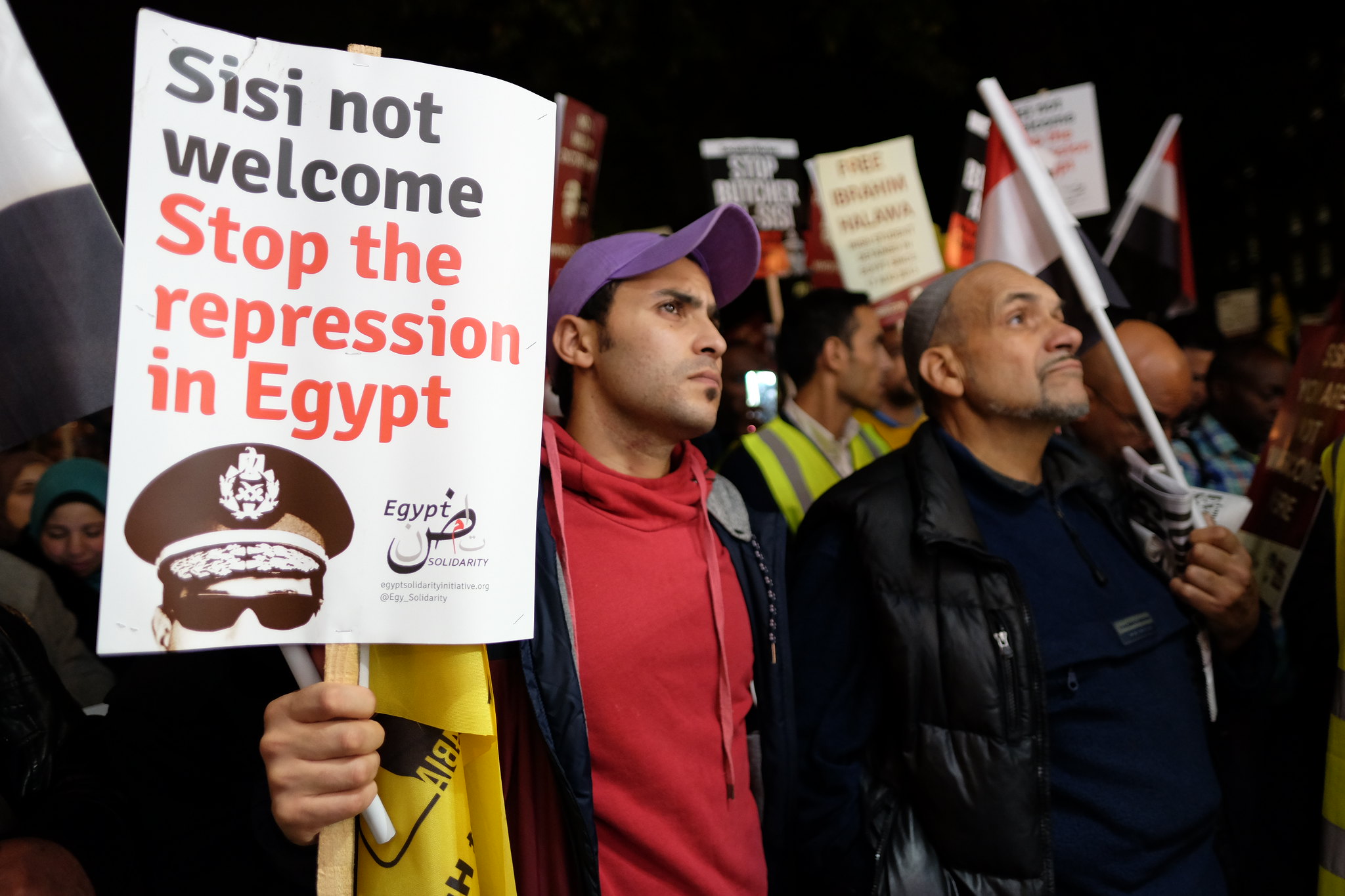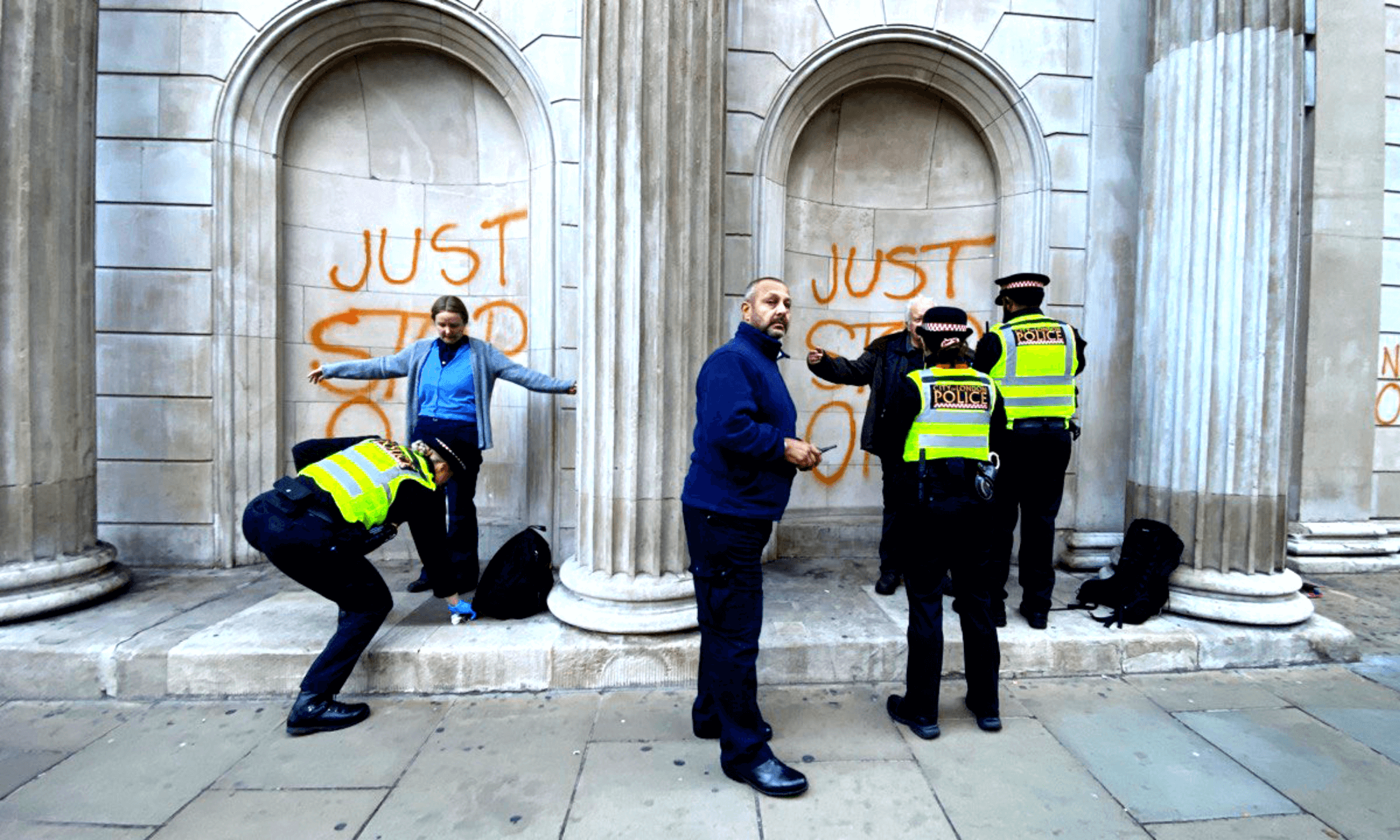
Image via flickr/Alisdare Hickson
Tensions have been high in Egypt this month as hundreds of protesters have taken to the streets with one clear demand: that President Abdelfattah El-Sisi must step down. These protests are reminiscent of the unrest which boiled over in January 2011, when the Arab Spring hit Egypt and masses of people took to Cairo’s Tahrir Square to demonstrate against former president Hosni Mubarak.
In 2011, the crowds were met with violence, live ammunition and tear gas, but protestors continued to express their concerns around the lack of political freedom, curtailed freedom of speech, high unemployment, food price inflation and low wages. Eventually, Mubarak was overthrown and he was convicted for complicity in the deaths of 846 people during the uprising, a verdict which was, unfortunately, overturned on appeal. Subsequent elections led to the late President Morsi being voted into a short-lived presidency, cut short when a military coup overthrew Morsi and made Abdelfattah El-Sisi the new President. Whilst the protesters’ key objective – to end the Mubarak regime – was realised, the events which followed demonstrated that the road to social harmony was long and complex.
This week, we see history repeating itself but in a different way. Mohammed Ali, a business tycoon who has built presidential palaces recently made a video exposing el-Sisi and the government, and making allegations that he was not paid for his work, and that millions had been spent on “vanity projects”. Ali, who took the precautionary measures of hiding his family in safety and flying to Spain, has taken it upon himself to lead the revival of the Arab Spring in Egypt. This recent uprising has seen thousands arrested, with Amnesty International reporting that more than 2,300 people have been arrested over a period of two weeks, describing the suppression of protests as the biggest crackdown under el-Sisi. Could this bold reaction from the state indicate that el-Sisi’s presidency is under threat?
“Mohammed Ali’s talks on his channel make it clear that the well-organised Sudanese revolution has been a source of inspiration”
Whilst there are many triggers for the recent uprisings, including inaction over the political, legal and societal demands raised in 2011, the ongoing revolution in neighbouring Sudan is likely to have played a role in re-igniting unrest. Mohammed Ali’s talks on his channel make it clear that the well-organised Sudanese revolution has been a source of inspiration.
Women played a key role in the Sudanese revolution, and a video of Alaa Salah, dressed in traditional Sudanese clothing and iconic gold earrings symbolising the Nubian heritage, and chanting about the way Islam has been manipulated by this regime to justify their policing, torture and murder caught the attention of the world and went viral. The term “Kandaka” meaning Nubian queen became an essential part of revolutionary language. Whilst many felt this was a great signifier of women’s empowerment, the Bashir regime stood firm on their misogynistic tactic of “break the woman, and you will break the men”, and instructed soldiers to rape, beat, imprison and torture women. The notable absence of women from the Egyptian uprisings so far could be attributable to the global stigma attached to rape and sexual violence, and fear of similar levels of violence and brutality as was meted out in Sudan.
Mohammed Ali’s role in these recent uprisings can be likened to the role of the Sudanese Professionals Association (SPA) who took the lead in directing Sudanese protesters in a well-organised schedule of resistance activities. Unlike Egypt’s 2011 uprisings, the Sudanese organisers covered a lot more than just protests. The SPA organised resistance meetings where they discussed demands in detail with local communities, and planned corresponding resistance activity needed to pressurise Bashir’s regime into meeting these demands.
“In Egypt this wave of protests has been dogged by popular scepticism”
One of the key notable differences between unrest in the two countries is that in Sudan there appears to be much more unity between the Sudanese population, and all the tribes and areas that were once divided, whereas in Egypt this wave of protests has been dogged by popular scepticism. In Sudan, the population had reached breaking point, and were more generally in agreement about what needed to change. The Sudanese revolution also had a level of trust in the SPA to lead them into achieving their aims, whereas in Egypt many are unsure if this round of protests will amount to anything substantial. “We’ve been here before” one protestor, Abdelrahman Mohammed, tells me. “People think taking down Sisi is number one priority, then anyone who comes next doesn’t really matter. Same story, hoping for democratic elections.” This sort of scepticism is definitely not an isolated feeling; many people in Egypt are on edge about what the outcome will be, particularly when considering their hopes and dreams for a better Egypt that were destroyed after Sisi took Morsi down in the military coup.
Other people in Egypt are inspired by both Sudan and Mohammed Ali, and think that this new development is the birth of a political success story for Egypt. A local mechanic in Cairo, Ahmed Ali, tells me that the Sudanese revolution is “inspirational”, and that Mohammed Ali can lead Egyptians in a good direction.“I have been regularly checking his channel and he speaks a lot of sense, much of what we have been afraid to say for so long” explains Ahmed, who says that socio-economic conditions are driving people to criticise the government. “This regime has pushed so many out of Egypt and people just want to return to their home. And many of us are living knowing we will never really work and earn enough money.”.
Revolutions are unique to the people and the political situation surrounding it, and it makes sense that the unity, spirit and leadership particularly from the women is still gathering steam and support in the Egyptian uprisings. Will the uprisings be successful in meeting the demands of the people? The answer is still not clear but it most definitely will be an interesting journey.









